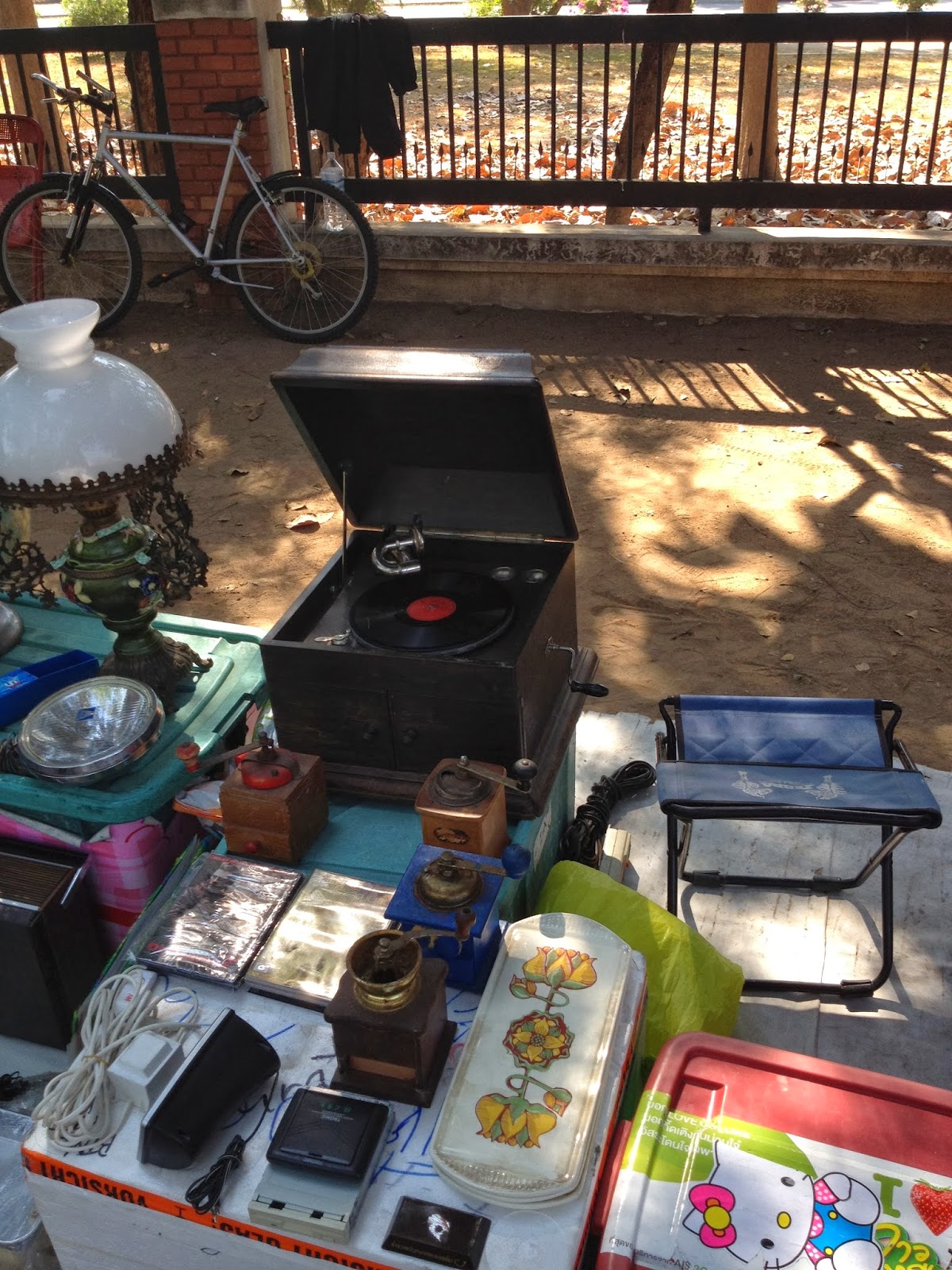I’m no stranger to Asian Markets. Between India, China, Taiwan, and Thailand,
I’ve been to a dozen or so. Each one seems to have its own appeal: Bazaars in Jaipur are known for textiles and jewellery,
the Dong Hua Men night market in Beijing is popular among tourists for its wide
selection of terrifying snacks, the Jimo
Lu Market in Qingdao has fake everything (i.e. Timev watches, Brikeensotk
sandals, NLKE shoes etc), markets throughout Taiwan are known for their unmatched potential to cause weight gain, and the markets
in Bangkok (both day and night varieties) are enormous affairs at which you can
purchase nearly anything you could possibly want for unbelievably
low prices. These are just a few.
In front of my apartment in Chiang Mai,
there is a daytime market that is set up and taken down
every Saturday and Sunday. It only spans about block and a half, and is
entirely on the roadside. Last weekend I paced this unnamed market and was
overwhelmed by the ridiculously random variety of items for sale. This weekend
I went with in with a mission: find some duct tape so I can patch a tear in my
window screen (the mosquitoes here love me).
In no particular order, here
are some of the things I saw:
- fresh brewed coffee
- Sega Genesis consoles (real and fake)
- switchblades
- an espresso stand that doubles as
open-mic station (free to any musician who wants to jam)
- miscellaneous car parts
- biker vests
- instant coffee on ice (shame, I know)
- ice cream
- bowie knives
- guitars, banjos, and musical accessories
- one snare drum (yes, just the one piece)
- Buddhist amulets (about a third of the stands were selling
these)
- fishing gear
- rotary phones
- fresh waffles
- military uniforms and accessories
- tools and power tools
- airsoft guns
- a booth featuring a suspiciously large selection of H&M
pants, with tags still attached
- deep fried whole fish
- samurai swords
- polarized sunglasses
- “specially selected” used clothes.
- local honey, sold in large whiskey
bottles (the vendor’s sign, written in cardboard, said “satisfaction
guarantee.” If the vendor is like most of the people in this city, she will
stand by her word)
- fresh fruit
- vintage typewriters
- hand-made wooden lanterns
- energy drinks (sketchy 30 cent Thai ones)
- more samurai swords, switchblades, and
bowie knives
- bicycle parts
- a man sitting down alone, blasting
country music through a boom-box at his booth. The boom-box was the only item
there, and it wasn't clear if he is selling it.
- vintage record players and other audio equipment
- live turtles
- sim cards
- sewing machines
- cacti
It seemed that there was everything but
duct tape--or any other kind of tape. Alas, I resorted to going to the mighty 7-Eleven to buy a roll of green tape. I did, however, purchase a USA
themed screwdriver for about a dollar at the market. I didn’t need it, but it’s good to have.
*Despite the fact that I wanted visual reminders of everything listed above, it wouldn't be right of me to walk around the market taking pictures of things. I just took a few.
 |
| Check out the phone. |
 |
| This hand-made distortion pedal is priced at $35. At home this would cost five times that (used). It actually sounds really good. I just may come back for it. |
 |
| More Jamming at the espresso stand (see last week's post) |
 |
| One dollar for this ironic gem--why not? |













